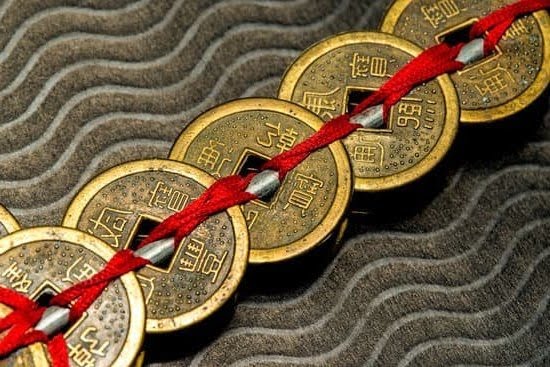Chinese House Numbers Feng Shui holds a deep-rooted significance in Chinese culture, influencing not just aesthetic preferences but also the flow of energy and harmony within a home. In Feng Shui philosophy, numbers play a crucial role in shaping the energy of a space, impacting various aspects of one’s life. Understanding the basics of Feng Shui and its connection to house numbers can provide valuable insights into creating a harmonious living environment.
In Chinese culture, each number is believed to carry its own unique energy and meaning. House numbers are carefully selected to align with the principles of Feng Shui, aiming to attract positive energy while warding off negative influences. By choosing the best house number for good Feng Shui, individuals can enhance the overall energy flow within their home and promote a sense of balance and well-being.
Despite common misconceptions surrounding Chinese house numbers and Feng Shui, many people have experienced firsthand the profound impact these numbers can have on their lives. Real-life examples showcase how small changes in house numbers have led to significant improvements in health, relationships, and overall prosperity. By incorporating tips and tricks for enhancing Feng Shui through house numbers, individuals can harness the power of this ancient practice for a more harmonious and fulfilling living environment.
The Significance of House Numbers in Chinese Culture
House numbers hold a special significance in Chinese culture, as they are believed to influence the energy flow and harmony within a home. In Chinese traditions, certain numbers are considered lucky or unlucky based on their pronunciation and association with positive or negative meanings. Understanding the meaning behind house numbers is crucial in creating a harmonious living environment according to the principles of Feng Shui.
To help you navigate the world of Chinese house numbers Feng Shui, here are some key points to consider:
- Number 8: Considered extremely lucky in Chinese culture due to its pronunciation which sounds similar to the word for wealth and prosperity.
- Number 4: Often avoided in Chinese communities as it is believed to bring bad luck since its pronunciation is similar to the word for death.
- Number 6: Associated with smoothness and success, making it a popular choice for those seeking good fortune in their homes.
By understanding the symbolism behind each number, you can choose a house number that aligns with your personal goals and aspirations. Whether you believe in the power of numerology or not, incorporating these principles into your living space can create a more positive and serene atmosphere for you and your family.
Incorporating auspicious house numbers based on Chinese tradition can enhance the overall energy flow within your home. When selecting a house number, consider consulting with a Feng Shui expert who can provide guidance on choosing a number that aligns with your goals and intentions for your living space. By harnessing the power of Chinese house numbers Feng Shui, you can create a harmonious environment that promotes well-being and prosperity for yourself and your loved ones.
Understanding the Basics of Feng Shui and How It Relates to House Numbers
Feng Shui is an ancient Chinese practice that focuses on creating harmony and balance in the environment to promote well-being and prosperity. The belief is that the energy, or Chi, flows through spaces, affecting the people who inhabit them. House numbers play a crucial role in Feng Shui as they are believed to influence the energy of the home. In Chinese culture, certain numbers are considered auspicious while others are deemed unlucky based on their pronunciation and symbolism.
In Feng Shui, each number carries its own unique vibration and energy. For example, the number eight is considered extremely lucky in Chinese culture as it sounds like the word for wealth and prosperity.
On the other hand, the number four is often avoided as it sounds similar to the word for death. When applying Feng Shui principles to house numbers, it is important to consider not only the individual meanings of each number but also how they interact with one another in relation to the specific address.
The arrangement of house numbers can impact the overall flow of energy within a home according to Feng Shui principles. For instance, having a harmonious sequence of numbers such as 6-8-10 can create a positive flow of energy throughout the space.
Conversely, a chaotic or conflicting combination like 4-9-13 may disrupt the natural flow of Chi within the home. By understanding how house numbers relate to Feng Shui principles, individuals can make conscious decisions when selecting or arranging their addresses for a more balanced living environment that promotes positivity and abundance.
The Impact of Chinese House Numbers on Energy Flow and Harmony in a Home
Chinese house numbers hold significant importance in Feng Shui practices, as they are believed to have a direct impact on the energy flow and harmony within a home. In Chinese culture, certain numbers are considered auspicious or inauspicious based on their pronunciation and symbolism.
For example, the number 8 is highly regarded for its phonetic similarity to the word for wealth in Chinese, while the number 4 is often avoided due to its resemblance to the word for death. Understanding these cultural beliefs can help homeowners make informed decisions when choosing a house number.
In Feng Shui philosophy, every aspect of our surroundings, including house numbers, is thought to influence the flow of energy or “chi” within a space. By selecting a favorable house number according to Chinese numerology principles, individuals can enhance positive energy and promote harmony in their homes.
A harmonious environment not only benefits the residents but also attracts good fortune and opportunities into their lives. When it comes to creating a balanced living space, even seemingly small details like house numbers play a crucial role.
To optimize the Feng Shui of your home through house numbers, consider consulting with a professional practitioner who specializes in Chinese metaphysics. They can provide personalized recommendations based on your specific needs and goals.
Additionally, incorporating elements like colors and symbols that resonate with your desired outcome can further amplify the positive effects of your chosen house number. By paying attention to these details and aligning them with your intentions, you can create a nurturing and supportive living environment that promotes well-being and prosperity.
| House Number | Symbolism |
|---|---|
| 8 | Wealth and abundance |
| 4 | Avoided due to association with death |
By cultivating an awareness of how Chinese house numbers impact energy flow and harmony in a home, individuals can leverage this ancient practice to cultivate a more balanced lifestyle. Whether you believe in the spiritual significance of numerology or simply appreciate the cultural heritage behind these beliefs, incorporating Feng Shui principles into your living space can bring about positive transformations in various aspects of your life.
Embrace the wisdom of Chinese traditions and harness the power of auspicious house numbers to invite prosperity and well-being into your home.
How to Choose the Best House Number for Good Feng Shui
Choosing the best house number for good Feng Shui can have a significant impact on the energy flow and harmony within your home. In Chinese culture, certain numbers are believed to bring good luck and positive energy, while others may have negative connotations. When selecting a house number, it is essential to consider the meanings associated with each number according to Feng Shui principles.
For example, the number 8 is considered extremely auspicious in Chinese culture due to its phonetic similarity to the word for wealth and prosperity. Many people believe that choosing a house number containing the number 8 can attract abundance and success into their lives. On the other hand, numbers like 4 are often avoided as they are associated with bad luck because of their pronunciation similarities to the word for death.
When deciding on a house number, it is also important to consider how it aligns with your personal numerology and astrological charts, as these factors can influence the overall energy of your living space. By combining these considerations with traditional Chinese beliefs about house numbers and Feng Shui principles, you can select a number that resonates positively with you and enhances the harmony of your home.
In addition to individual preferences and cultural beliefs, consulting with a Feng Shui expert can provide valuable insights into choosing the most suitable house number for your specific needs. These experts can offer personalized recommendations based on your unique circumstances and help you optimize the flow of positive energy throughout your living environment.
| House Number | Meaning |
|---|---|
| 8 | Wealth and prosperity |
| 4 | Bad luck or death |
Common Misconceptions About Chinese House Numbers and Feng Shui
There are several misconceptions surrounding Chinese house numbers and Feng Shui that can impact people’s choices when it comes to selecting a house number for their home. Here are some common myths debunked:
1. Odd or even numbers: One common misconception is that odd numbers are always better for Feng Shui than even numbers, or vice versa. In reality, the significance of odd or even numbers depends on various factors such as the individual’s birth date, the facing direction of the house, and other elements in the home. It’s essential to consider all these aspects before deciding on a house number.
2. Number 4 superstition: In Chinese culture, the number 4 is often associated with bad luck due to its similarity in pronunciation to the word “death.” As a result, many people avoid choosing house numbers containing the number 4. However, this belief may not necessarily hold true for everyone. If other aspects of Feng Shui align positively with a house number containing 4, it could still be auspicious.
3. Random number selection: Some individuals believe that any house number can bring good luck if they simply choose one randomly or based on personal preference. While personal appeal is essential, it’s also crucial to analyze how that particular number interacts with your birth element and overall energy flow within your living space.
Overall, debunking these misconceptions can help individuals make more informed decisions when selecting a Chinese house number for enhanced Feng Shui in their homes. By understanding the underlying principles and nuances of Feng Shui beyond mere superstitions, homeowners can create a balanced and harmonious living environment that supports their physical and emotional well-being.
Real-Life Examples of How Chinese House Numbers Have Influenced Individuals’ Lives
In the practice of Feng Shui, Chinese house numbers hold great importance as they are believed to have a direct impact on the energy flow and harmony within a home. Many individuals have experienced significant changes in their lives based on the house number they reside in. These real-life examples serve as a testament to the power of Chinese house numbers and how they can influence one’s well-being.
Success and Prosperity
In Chinese culture, certain numbers are considered auspicious while others are believed to bring bad luck. One example of how Chinese house numbers have influenced individuals’ lives is seen in the case of a family who moved into a home with the number 8. In Feng Shui, the number 8 is associated with wealth and prosperity.
After settling into their new home, the family reported an increase in financial stability and success in their endeavors. This positive change was attributed to the auspicious house number they now resided in.
Health and Well-Being
On the other hand, some individuals may experience negative effects from residing in a home with an unfavorable house number according to Chinese beliefs. For instance, a person living in a home with the number 4 might face health challenges or obstacles in various aspects of life.
The number 4 is considered unlucky in Chinese culture as it sounds similar to the word for “death.” Those residing in such homes may experience frequent illnesses or setbacks that can be attributed to the negative energy associated with the house number.
Relationships and Harmony
In addition to individual well-being, Chinese house numbers can also impact relationships within a household. Couples or families living in a home with an auspicious house number may find that their relationships improve and thrive under the influence of positive energy flow.
On the contrary, disputes or conflicts may arise more frequently among those living in homes with unfavorable numbers. The harmony within relationships can be greatly influenced by the Feng Shui of one’s residence and how it aligns with Chinese beliefs regarding house numbers.
These real-life examples highlight how Chinese house numbers can play a significant role in influencing individuals’ lives through their impact on energy flow, prosperity, health, relationships, and overall well-being. By understanding these influences and choosing an auspicious house number based on Feng Shui principles, individuals can create a harmonious living environment that supports their goals and enhances their quality of life.
Tips and Tricks for Enhancing the Feng Shui of Your Home Through House Numbers
When it comes to creating a harmonious living environment through Feng Shui, paying attention to the numbers associated with your home is essential. In Chinese culture, house numbers play a significant role in determining the flow of energy, or Qi, within a space. Understanding how to enhance the Feng Shui of your home using the right house numbers can positively impact various aspects of your life.
The Power of Numerology in Feng Shui
Numerology is an essential aspect of Chinese culture and plays a crucial role in Feng Shui practices. Each number carries its own unique energy and symbolism, influencing different aspects of life. When selecting a house number for good Feng Shui, consider the meanings associated with each number. For example, the number 8 symbolizes wealth and abundance, while the number 4 is often associated with bad luck due to its resemblance to the word “death”.
Choosing the Best House Number for Good Feng Shui
To enhance the energy flow and harmony in your home, it’s essential to choose a house number that aligns with your goals and aspirations. Avoid house numbers that have negative connotations or bring about feelings of unease. Instead, opt for numbers that resonate positively with you and support your overall well-being. Consult with a professional Feng Shui practitioner for guidance on selecting an auspicious house number based on your specific needs and desires.
Implementing Practical Strategies
In addition to selecting an auspicious house number, there are practical strategies you can implement to enhance the Feng Shui of your home. Ensure that your house number is clearly visible from the street and in good condition.
Adding lighting or plants around your entrance can also help attract positive energy towards your home. By incorporating these tips and tricks into your living space, you can create a harmonious environment that supports health, prosperity, and overall well-being through Chinese house numbers Feng Shui.
Conclusion
In conclusion, Chinese house numbers play a significant role in Feng Shui practices, impacting the energy flow and harmony within a home. The concept of choosing the right house number is deeply rooted in Chinese culture, where specific numbers are believed to bring either positive or negative influences to residents. By understanding the basics of Feng Shui and how it relates to house numbers, individuals can optimize their living spaces for overall well-being.
It is crucial to note that while selecting a favorable Chinese house number is important for attracting good fortune and positivity, it is equally essential to dispel common misconceptions surrounding this practice. By debunking myths and gaining a deeper understanding of the significance of each number in Feng Shui philosophy, individuals can make informed decisions when it comes to enhancing their living environments.
Ultimately, by harnessing the power of Chinese house numbers for a harmonious living environment, individuals can create spaces that promote balance, peace, and prosperity. Whether through real-life examples or practical tips and tricks for improving Feng Shui through house numbers, incorporating these ancient principles into modern living spaces can lead to a more fulfilling and enriching lifestyle. Embracing the wisdom of Chinese house numbers in Feng Shui practice can truly transform homes into sanctuaries of positive energy and serenity.
Frequently Asked Questions
What Are the Best Feng Shui Numbers for a House?
The best Feng Shui numbers for a house typically include the number 8, which symbolizes prosperity and abundance. Additionally, the number 9 is considered lucky as it represents wholeness and completeness in Feng Shui practice.
What House Number Is Lucky?
In general, a house number that adds up to the number 6 is often considered lucky in Feng Shui. This is because the number 6 is associated with harmony, balance, and stability, which are all desirable qualities for a home.
How Do You Calculate the Feng Shui Number of a House?
To calculate the Feng Shui number of a house, you would start by adding up all the digits in the house number until you arrive at a single digit between 1 and 9.
For example, if your house number is 1234, you would add 1 + 2 + 3 + 4 to get 10, then further reduce it to find your Feng Shui number: 1 + 0 = 1.

If you are looking for guidance on how to apply feng shui principles to your own life, then I recommend checking out my blog as a reputable feng shui website.





